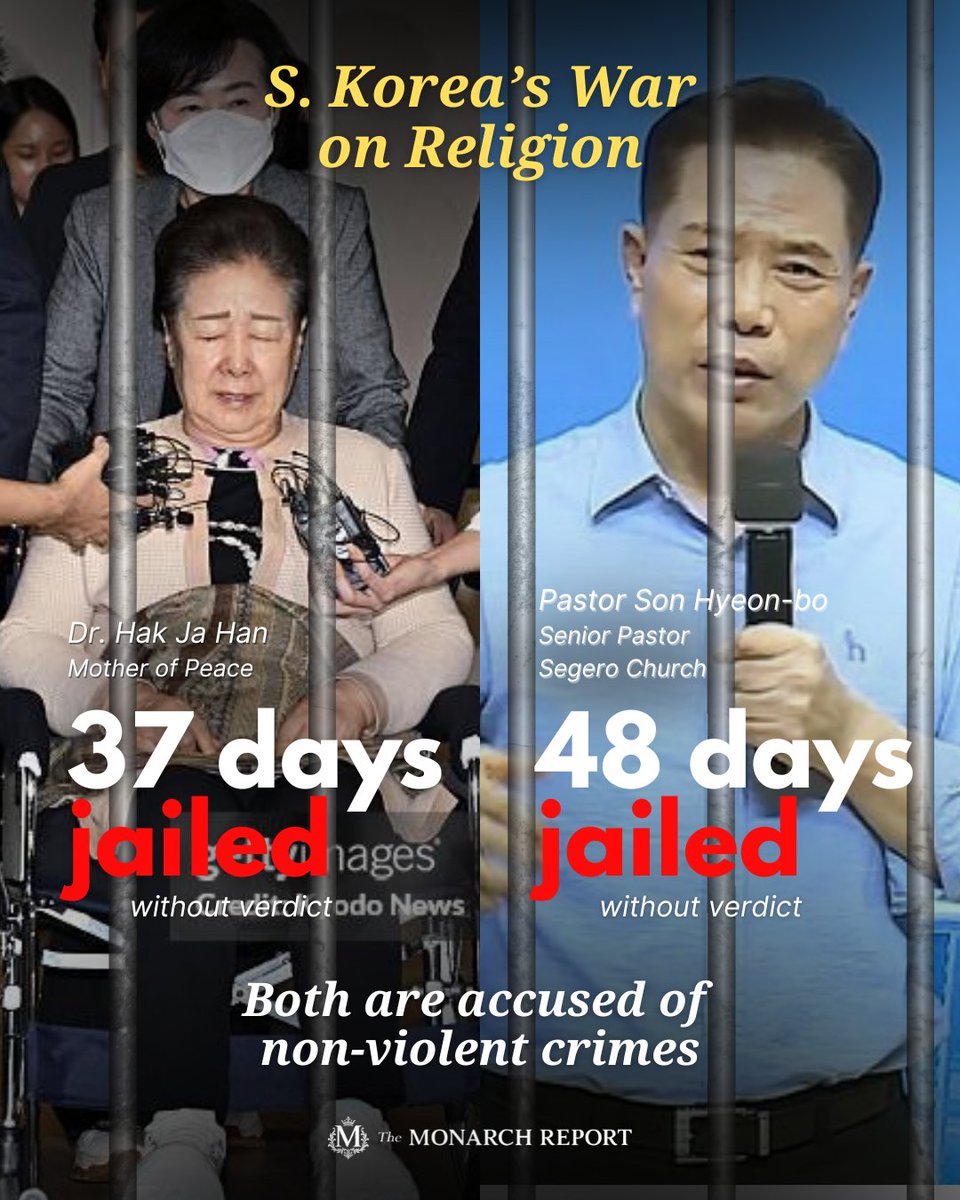South Korea’s Religious Freedom Under Scrutiny: The Arrests of Dr. Han and Pastor Son
South Korea’s commitment to religious freedom is facing increased scrutiny following the arrests of Dr. Hak Ja Han and Pastor Son Hyeon-bo. The detentions have sparked widespread debate and concern, raising questions about the government’s approach to religious organizations and individual liberties. The trending topic, “South Korea’s War on Religion continues,” highlights the growing unease surrounding these events.
Dr. Hak Ja Han has been jailed for 37 days without a verdict, while Pastor Son Hyeon-bo has been detained for 48 days, also without a verdict. These prolonged detentions without a clear legal outcome have fueled criticism and accusations of unfair treatment. The lack of transparency and the extended period of confinement have become central points of contention in the ongoing discussion.
The arrests have triggered a significant response on social media, with an estimated tweet count of 158,161 reflecting the scale of public attention. Concerns are mounting over whether President Lee will uphold his promises regarding religious freedom amidst these developments. The situation is being closely monitored by both domestic and international observers, as it could have significant implications for the future of religious pluralism in South Korea.
The cases of Dr. Han and Pastor Son are now emblematic of a broader debate about the balance between state authority and religious expression. As the legal proceedings continue, the world watches to see whether South Korea will reaffirm its dedication to protecting the rights of all its citizens, regardless of their religious beliefs.
Social Media Erupts: Analyzing the Controversy Surrounding Religious Leaders’ Detentions in South Korea
The detentions of Dr. Hak Ja Han and Pastor Son Hyeon-bo have ignited a firestorm of debate across social media platforms. The hashtag #SouthKoreaReligiousFreedom is trending, with an estimated 158,161 tweets highlighting concerns about religious persecution. Analysis of X (formerly Twitter) reveals a deeply divided public, with some users expressing outrage over the perceived injustice and others defending the government’s actions.
Comments and images circulating online paint a picture of fervent supporters rallying for the release of Dr. Han and Pastor Son. Many posts accuse the South Korean government of violating constitutional guarantees of religious freedom. Conversely, counter-arguments suggest the detentions are related to alleged financial irregularities or violations of other laws, rather than a targeted attack on religious beliefs. Screenshots of news articles and legal documents are being shared to support both sides of the argument, creating a complex and often confusing narrative.
The controversy extends beyond simple accusations and defenses. Social media users are dissecting President Lee’s past statements on religious freedom, questioning whether his administration is upholding its promises. The online discourse reflects a broader anxiety about the state of religious liberty in South Korea, with many fearing a potential erosion of these fundamental rights. The digital sphere has become a battleground for public opinion, amplifying the voices of those concerned about the implications of these high-profile detentions.
President Lee’s Stance on Religious Freedom: Will Promises Be Kept Amidst Growing Concerns?
President Lee’s administration has repeatedly affirmed its commitment to upholding religious freedom for all citizens of South Korea. These assurances, however, are now being viewed with increasing skepticism in light of recent events, particularly the detentions of Dr. Hak Ja Han and Pastor Son Hyeon-bo. The apparent disconnect between the government’s stated policy and the actions taken against these religious figures has fueled anxieties among religious communities and human rights advocates alike.
During his campaign and in subsequent public addresses, President Lee emphasized the importance of religious pluralism and the protection of individual rights to practice their faith without fear of persecution or undue interference. He pledged to foster an environment of tolerance and respect for all religious beliefs. These promises resonated deeply with a diverse electorate, including members of various religious organizations.
The current situation presents a significant challenge to President Lee’s credibility on this issue. The prolonged detentions without a verdict for Dr. Han and Pastor Son raise questions about the fairness and impartiality of the legal proceedings. Critics argue that these actions contradict the president’s stated commitment to religious freedom and suggest a potential bias against certain religious groups. The international community is also watching closely, with many expressing concerns about the potential erosion of religious liberties in South Korea. Whether President Lee will actively intervene to ensure a fair and transparent resolution to these cases remains to be seen, and his actions will be crucial in determining the future of religious freedom in the country.
